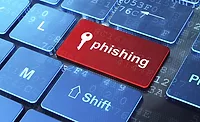Users' Perceptions of Password Security Don't Always Match Reality
People's perceptions of password strength may not always match reality, says a recent study by CyLab, Carnegie Mellon's Security and Privacy Institute.
For example, study participants expected ieatkale88 to be roughly as secure as iloveyou88; one said "both are a combination of dictionary words and are appended by numbers." However, when researchers used a model to predict the number of guesses an attacker would need to crack each password, ieatkale88 would require four billion times more guesses to crack because the string "iloveyou" is one of the most common in passwords.
"Although participants generally had a good understanding on what makes passwords stronger or weaker, they also had some critical misunderstandings of how passwords are attacked and assumed incorrectly that their passwords need to withstand only a small number of guesses," said Blase Ur, the study's lead author and a Ph.D. student studying societal computing in Carnegie Mellon's School of Computer Science.
Participants, on average, also believed any password with numbers and symbols was a strong password, which is not always true. For example, p@ssw0rd was thought to be more secure than pAsswOrd, but the researchers' attacker model predicted that it would take 4,000 times more guesses to crack pAsswOrd than p@ssw0rd. In modern day password-cracking tools, replacing letters with numbers or symbols is predictable.
"In order to help guide users to make stronger passwords, it is important for us to understand their perceptions and misperceptions so we know where interventions are needed," said Lujo Bauer, a co-author on the study and a professor in Carnegie Mellon's Department of Electrical and Computer Engineering and Institute for Software Research.
The team of researchers, based in the CyLab Usable Privacy and Security (CUPS) Lab, asked 165 online participants — 51% male, 49% female from 33 U.S. states ranging from 18 to 66 years of age — to rate the comparative security and memorability of 25 carefully juxtaposed password pairs. In addition, participants were asked to articulate how they would expect attackers to try to guess their passwords.
"As companies are designing tools that help people make passwords, they should not only be giving users real-time feedback on the strength of their passwords, but also be providing data-driven feedback on how to make them stronger," Ur said.
Looking for a reprint of this article?
From high-res PDFs to custom plaques, order your copy today!






